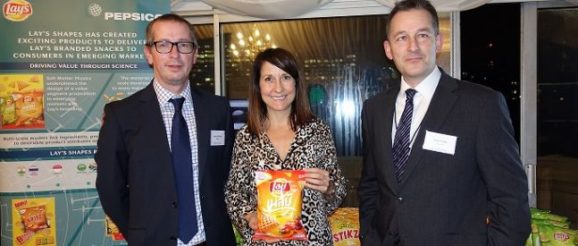PepsiCo Receives Institute Of Physics Award For Snacks Innovation Work

PepsiCo has been awarded one of six Business Innovation Awards from the Institute of Physics (IOP) for the development of breakthrough snack products through the application of soft matter physics.
The Business Innovation Awards are presented to businesses that have built success on the innovative application of physics.
No Soft Matter
The award is in recognition of the company’s soft matter physics approach, which was applied to the development of new snack products for consumers in emerging markets (including India, Thailand, and Indonesia).
Based on physics principles, this breakthrough provided a new route to delivering affordable and culturally relevant Lay’s-branded snacks to consumers that are in-line with PepsiCo’s Performance with Purpose goals to reduce the levels of sodium and saturated fat in its snacks.
In collaboration with Prof van der Sman of Wageningen University, the team applied soft matter physics tools such as Complex Disperse System methodology with fundamental characterisation methods such as microscopy – to define and understand ingredient and product functionality from a micro-structural perspective.
“I am delighted that the IOP Business Awards are recognising and celebrating this year’s winners tonight. These awards are the only awards in the country that recognise and reward companies that have built success on creative applications of physics,” President of the IOP Professor Dame Julia Higgins said, congratulating PepsiCo on the awards.
“These awards shine a light on the potential of physics to produce cutting-edge technologies, to drive business innovation and growth and to stimulate far-reaching social and economic change. But they also remind us that these benefits can only be sustained with continued investment and a healthy supply of physicists and other STEM-trained people.”
© 2018 Checkout – your source for the latest Irish retail news. Article by Aidan O’Sullivan. Click to sign up for the Checkout print edition.
